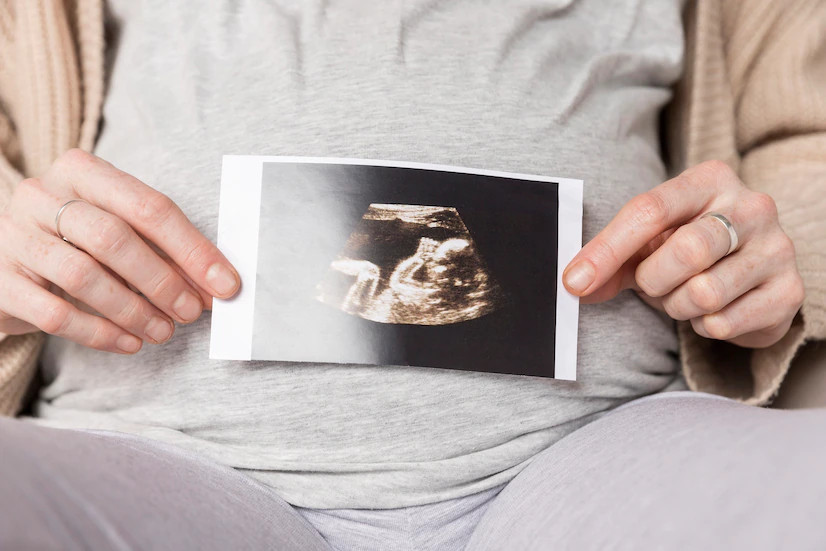Setiap ibu hamil tentu menginginkan janin yang dikandungnya tumbuh sehat. Untuk itu, ibu hamil perlu mengetahui tanda-tanda janin berkembang dengan sehat atau tidak selama kehamilan. Simak artikel berikut untuk mengetahui tanda-tanda pertumbuhan janin yang sehat.
Tanda-Tanda Janin Tumbuh Sehat
Ketika hamil, ibu perlu memantau perkembangan kondisi janin. Untuk mengetahui kondisi janin bisa dilakukan dengan melakukan pemeriksaan USG atau memerhatikan perubahan fisik yang dialami ibu. Dengan mengetahui kondisi janin yang sehat, ibu bisa segera memeriksakan kehamilan jika terjadi komplikasi kehamilan.
Beberapa tanda janin tumbuh sehat antara lain:
Pertumbuhan janin konsisten
Pada trimester awal kehamilan, janin dikatakan sehat jika tumbuh kembangnya konsisten. Umumnya janin mengalami penambahan panjang lebih dari 3-5 cm setiap bulannya. Janin juga mengalami penambahan berat badan 600-800 gram dan penambahan ukuran kepala setiap bulannya.
Ibu mengalami kenaikan berat badan
Penambahan berat badan ibu hamil dapat mengindikasikan pertumbuhan janin yang sehat. Penambahan berat badan ibu hamil tergantung dari berbagai faktor seperti usia kehamilan, indeks massa tubuh, dan apakah ibu hamil mengalami kehamilan kembar atau tidak.
Saat melakukan pemeriksaan kehamilan, dokter akan mengukur berat badan ibu, lalu dokter akan menentukan apakah penambahan berat badan termasuk kategori sehat atau tidak.
Baca Juga: Kolesterol Tinggi saat Hamil, Berbahayakah bagi Janin?
Detak jantung janin terasa
Janin yang sehat juga memiliki detak jantung yang sehat. Umumnya detak jantung janin dapat dirasakan sejak minggu kelima kehamilan. Anda bisa mengetahui detak jantung janin ketika melakukan pemeriksaan kehamilan menggunakan ultrasound doppler.
Normalnya detak jantung janin berkisar antara 100-160 detak per menit. Di tahap akhir kehamilan, dokter juga perlu melakukan pemeriksaan detak jantung untuk mengevaluasi apakah detak jantung janin sehat menjelang masa persalinan.
Pergerakan janin sehat
Memasuki usia kehamilan 4-5 bulan, Anda mulai bisa merasakan gerakan bayi. Gerakan janin pada kehamilan anak kedua dan seterusnya biasanya muncul lebih cepat jika dibandingkan dengan kehamilan anak pertama.
Ibu perlu memantau gerakan janin terutama ketika mendekati persalinan. Bila gerakan janin terasa berkurang sebaiknya segera periksakan ke dokter.
Baca Juga: Berat Badan Ideal Janin Selama Kehamilan
Tanda-Tanda Gangguan Perkembangan Janin
Pada beberapa kehamilan, ibu hamil bisa mengandung janin yang tidak berkembang. Kondisi ini sering terjadi pada trimester awal kehamilan. Pada sebagian besar kasus, kondisi ini merupakan kondisi darurat yang membutuhkan penanganan segera.
Tanda-tanda janin mengalami gangguan perkembangan kesehatan antara lain:
Perdarahan vagina
Pada kehamilan trimester awal, munculnya flek atau bercak darah sebenarnya merupakan hal yang normal. Namun jika ibu hamil mengalami perdarahan vagina, hal ini merupakan salah satu tanda janin tidak berkembang dengan sehat.
Perdarahan bisa terjadi akibat tanda keguguran atau kehamilan ektopik (hamil di luar rahim). Segera lakukan pemeriksaan ke dokter jika ibu hamil mengalami perdarahan vagina terutama jika diiringi oleh kram perut yang hebat.
Tidak ada tanda-tanda kehamilan
Di awal kehamilan, tubuh akan mengalami perubahan fisik seperti mual dan muntah, payudara nyeri, serta perubahan suasana hati. Jika sebelumnya Anda mengalami gejala tersebut lalu tiba-tiba gejala tersebut berhenti diiringi gejala lain seperti flek, perdarahan atau kram perut sebaiknya periksakan ke dokter.
Tidak terdengar detak jantung janin
Ketika usia kehamilan sudah berjalan memasuki bulan kedua atau ketiga dan detak jantung bayi tidak terdengar melalui pemeriksaan doppler, hal ini bisa menandakan janin tidak berkembang dengan sehat. Dokter akan melakukan pemeriksaan lebih lanjut untuk mengantisipasi tanda-tanda keguguran.
Mengetahui tanda-tanda perkembangan janin yang sehat dapat membantu menjaga kehamilan tetap sehat. Bagi ibu hamil, sebaiknya lakukan pemeriksaan kesehatan rutin minimal sekali setiap bulan dan seminggu sekali menjelang persalinan.
Jika memiliki pertanyaan seputar kehamilan sebaiknya konsultasikan ke dokter atau manfaatkan fitur konsultasi pada aplikasi Ai Care yang bisa diunduh melalui App Store dan Play Store.
Mau tahu informasi seputar kehamilan, menyusui, kesehatan wanita dan anak-anak? Cek di sini, ya!
- dr Nadia Opmalina
Pregnancy Birth & Baby. Warning Signs During Pregnancy. Available from: https://www.pregnancybirthbaby.org.au/warning-signs-during-pregnancy
Mayo Clinic. 1st Trimester Pregnancy: What to Expect. Available from: https://www.mayoclinic.org/healthy-lifestyle/pregnancy-week-by-week/in-depth/pregnancy/art-20047208
Stanford Medicine Children’s Health. Pregnancy: What’s Normal … and What's Not. Available from: https://www.stanfordchildrens.org/en/topic/default?id=pregnancy-whats-normal-and-whats-not-1-4076
Watson, S. (2023). First Trimester of Pregnancy. Available from: https://www.webmd.com/baby/first-trimester-of-pregnancy
Super Health Chatswood Medical Centre. Signs of a Healthy Pregnancy – Maintaining the Good Antenatal Care. Available from: https://www.shchatswoodmedicalcentre.com.au/signs-healthy-pregnancy/
Cleveland Clinic. Fetal develompment. Available from: https://my.clevelandclinic.org/health/articles/7247-fetal-development-stages-of-growth












